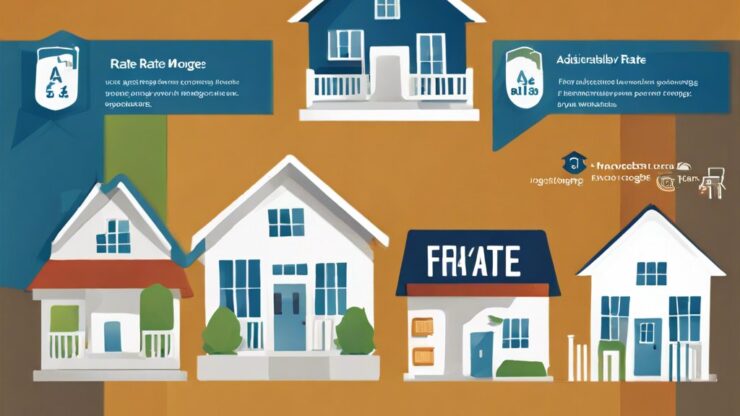The choice between a fixed-rate mortgage (FRM) and an adjustable-rate mortgage (ARM) is one of the most crucial decisions a potential homeowner will face. Each type of mortgage comes with its own set of characteristics, costs, and benefits that can significantly affect your financial future. In this article, we will break down the essential features of both mortgage types to help you make an informed decision.
Fixed-rate mortgages are often praised for their stability and predictability. With an FRM, the interest rate remains constant throughout the life of the loan, which means your monthly payments will never change. This can be particularly appealing for long-term planning and budgeting, as homeowners know exactly what to expect.
However, while the fixed-rate mortgage offers peace of mind, it may come with higher initial interest rates compared to ARMs. Additionally, in a declining interest rate environment, homeowners may miss out on lower rates unless they refinance.
- Pros of Fixed-Rate Mortgages:
- Stable monthly payments
- Protection from interest rate increases
- Easy budgeting and long-term planning
- Cons of Fixed-Rate Mortgages:
- Generally higher initial rates
- Less flexibility if rates drop
- Potentially higher overall interest costs over time
Adjustable-rate mortgages can be enticing due to their lower initial interest rates, which can translate into reduced monthly payments, especially in the early years. This structure can make ARMs particularly appealing for homebuyers who plan to move or refinance before the adjustable period kicks in.
However, the allure of lower initial rates comes with potential risks. After the initial fixed-rate period, the interest rate adjusts periodically based on market conditions, which can lead to significantly higher payments. This uncertainty can be daunting for those who value financial predictability.
- Pros of Adjustable-Rate Mortgages:
- Lower initial interest rates
- Possibility of reduced payments in the early years
- Potentially lower overall interest costs if rates remain stable
- Cons of Adjustable-Rate Mortgages:
- Uncertainty in future payments
- Risk of payment shock after the initial fixed period
- Market fluctuations can lead to higher long-term costs
Disclaimer
This article has been created or edited with the support of artificial intelligence and is for informational purposes only. The information provided should not be considered investment advice. Please seek the support of a professional advisor before making any investment decisions.






